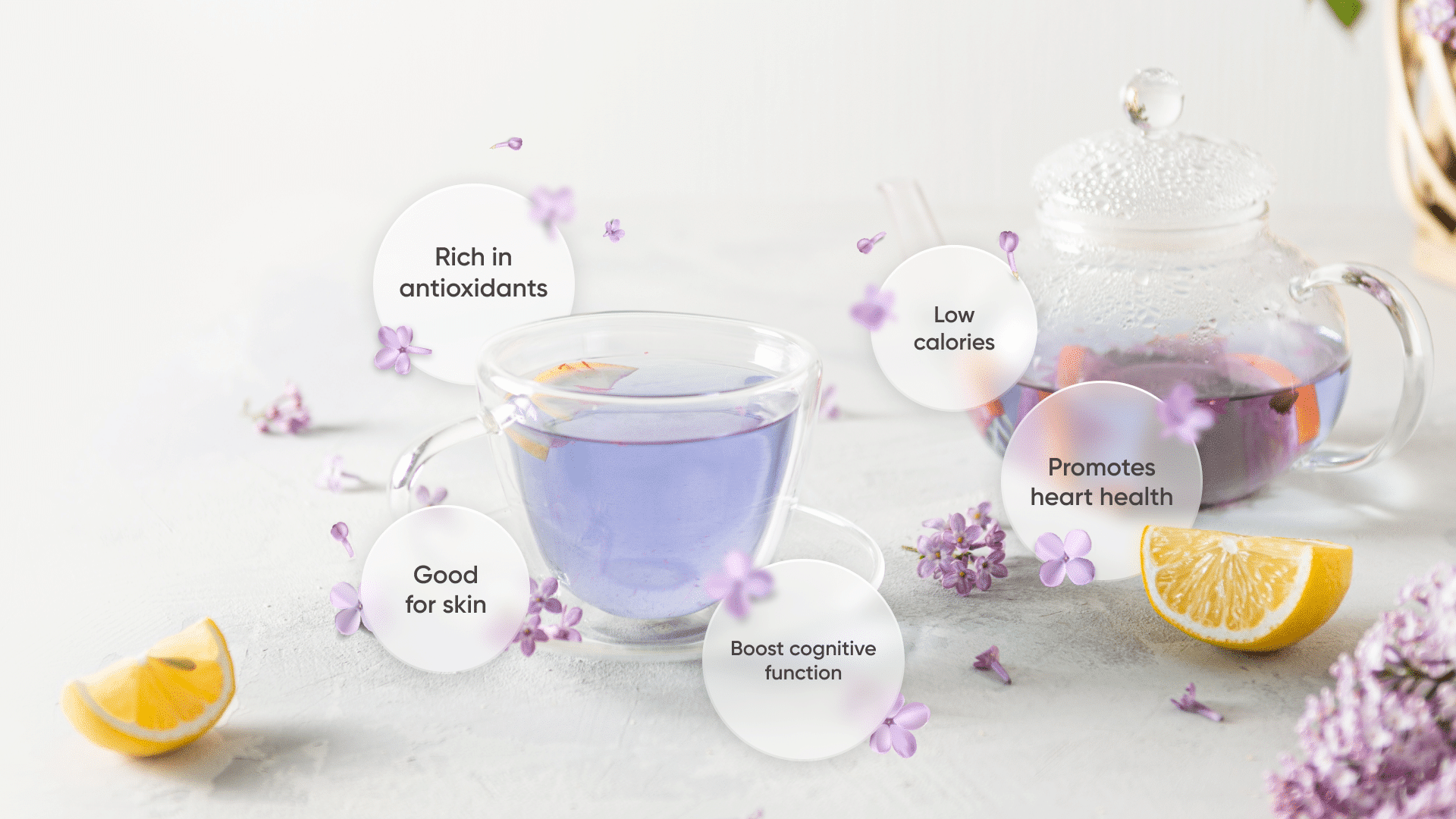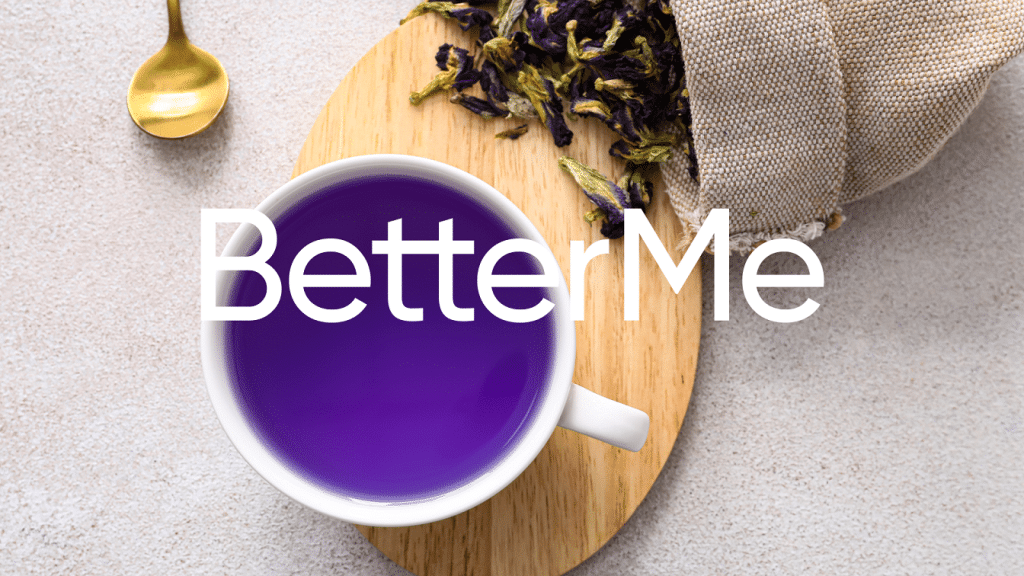Although purple tea has not been in the tea market for long, it is slowly gaining popularity as more people know about it. Most tea lovers fall in love with it due to its unique flavor, potential health benefits, and overall profile. However, though it is rising in popularity among tea lovers, many people still do not know about it. Perhaps you as a tea lover are in the dark about its history, properties, and benefits. That said, we are pleased to share more insight about purple tea below. Check it out.
What Is Purple Tea?
As the name suggests, the tea produces a rich purple color when prepared with hot water. Most people confuse this purple tea with purple hibiscus tea, despite the two being entirely different.
Purple tea was first discovered growing wild in India in a region named Assam. However, it is commercially grown in Kenya, Africa, in areas such as the Tumoi Tea Garden found in the Nandi Hills of Kenya. Purple tea in Kenya was developed by the Tea Research Foundation of Kenya (TRFK) (4).
Purple Tea’s Profile
Because it is relatively new, some think it is obtained from a unique purple tea plant. However, just like other tea varieties, purple tea is also a variety of Camellia sinensis plant. Most teas are produced from one of two varieties of this plant. These include Camellia sinensis Sinensis or Camellia sinensis assamica (4).
White, green, black, Pu-erh, oolong and purple teas come from these varieties but primarily differ in their production, harvesting, and processing methods. While most of these teas are produced from dark green leaves, purple tea is made from a purple-leafed variety of the tea plant (4).
Purple tea is processed by the same method used to process green tea. You can find that these two teas have many of the same components. For example, they contain polyphenolic compounds such as epigallocatechin gallate (EGCG) and epicatechin gallate (ECG) (4).
However, purple tea has additional and unique components like anthocyanidins (malvidin, pelargonidin and cyanidin 3-O-galactoside) and 1,2-di-O-galloyl-4,6-O-(S)-hexahydroxytriphenylene-β-D-glucose (GHG) (4). These components are helpful in the body, as you shall see in the discussion of purple tea benefits.
What Is The Flavor Of Purple Tea?
Of course, tea lovers question its flavor, just like they would for any other tea variety. Well, purple tea has a unique flavor. Its flavor profile resembles that of oolong tea. When you compare it to black tea however, its flavor is slightly lighter (4).
In regards to green tea, it lacks that vegetation taste. All in all, the tea has a rich flavor that you will likely enjoy, especially if you love trying out different flavors.
Does Purple Tea Contain Caffeine?
Yes, it does. However, purple tea’s caffeine content is very low. Research shows that it is even lower than that of green tea. As for white tea, purple tea is slightly higher (4).
Read More: Chai Tea: Facts, Health Benefits And Side Effects
How Do You Prepare Purple Tea?
Easy! All you need is your purple leaf tea and a cup or two of water. The amount of water will vary depending on the preferred servings. Once you have these, now (4):
- Heat the water until it is steaming and not boiling.
- Add your purple leaf tea and let it steep for about three minutes. Research shows that the shorter the steeping time, the less caffeine present in your cup of purple tea (4).
- Serve and enjoy. Alternatively, you can add some lemon juice or a scoop of honey for enhanced flavors.
Purple Tea Health Benefits
Of course, this tea variety brings more to the table than just some unique flavor. Although it is relatively new to the market, researchers have conducted some studies and found several possible benefits linked to consuming this tea.
That said, they suggest you consult with your doctor before adding this tea to your diet for any of the listed benefits. Here are some of the research backed-up potential benefits of consuming purple tea:
A Brand New Tea And Flavor Experience
As discussed earlier, most tea varieties like black, green, and oolong tea come from the dark green leaves of the Camellia sinensis plant (4). However, purple tea comes from purple leaves.
If you love trying out fresh foods and drinks, you will enjoy consuming purple tea. Additionally, you may also love trying out different ingredients for enhanced flavors.
For example, you may experiment by adding a few drops of lemon juice to the tea. Otherwise you may add a scoop of honey and still enjoy your tea. As you do this, you will observe that your tea will change color depending on the extra ingredient.
For example, adding some drops of lemon juice may turn it to a rich purple or pink color depending on the number of drops. This happens because antioxidants in the tea react with the added ingredient (1).
Please note, the changes only occur if you use pure and unblended purple tea. Remember to do your research and consult with a professional before adding extra ingredients to the tea.
Rich In Antioxidants
Purple tea is also rich in antioxidants, associated with numerous health benefits. For example, studies show that the tea contains super antioxidants known as anthocyanins. These antioxidants can also be found in other purple plants, such as acai, blueberries, and pomegranates.
Anthocyanins have been found to have several properties that might benefit you health-wise. Some of these include (1):
-
Anticancer Properties
A 2017 study showed that the anticancer properties of anthocyanins protected cells from free radical damage. In addition, they were shown to neutralize the harmful effects of these free radicals, possibly making your cells less susceptible to becoming cancerous (1).
-
Apoptotic Activities
The apoptotic activities of anthocyanins may also reduce cancer risks and other fatal cell morphological changes. For instance, changes like cell shrinkage, nuclear fragmentation, DNA fragmentation, and mRNA decay (1).
-
Anti-Inflammatory Properties
The anti-inflammatory properties of anthocyanins could help block substances in the body that result in inflammation. Inflammation is often characterized by swelling, redness, and pain in specific parts or the entire body.
-
Anti-Viral Properties
The anthocyanins in purple tea have also been shown to have anti-viral properties. These properties might help with fighting against viruses plus inhibiting their growth.
If you wish to cinch your waist, tone up your bat wings, blast away the muffin top – our fitness app was created to cater to all your needs! BetterMe won’t give excess weight a chance!
Reduced Cholesterol Levels
Anthocyanins in supplement form have also been shown to lower LDL cholesterol levels, which helps reduce a string of health conditions. For example, high LDL “bad” cholesterol levels are tied to stroke, coronary heart disease, high blood pressure, and type 2 diabetes (2). Additionally, high LDL cholesterol in the blood has been shown to cause buildup and blockage in the arteries, causing peripheral arterial disease (2).
Improved Immune Health
Drinking purple tea might also help boost your immune health due to its richness in anthocyanins. A strong immune system is vital as it helps your body fight against pathogens that may lead to various diseases.
Increased Relaxation
Drinking tea ranks as one of the traditions that enhance relaxation. So, generally, drinking purple tea can help promote relaxation. However, scientists have found that purple tea also contains a unique amino acid known as L-theanine. L-theanine has been shown to reduce anxiety and relax the mind without inducing drowsiness (3).
That said, consult with your doctor before you consider drinking purple tea for its relaxation purposes. You may find that they may recommend other strategies instead of drinking this tea. It is because some methods work best for different people.
They may suggest practicing mindful meditation, doing yoga, listening to soothing music, exercising, soaking in a warm bath, or taking brisk walks.
Read More: Ginger Tea With Honey: Facts, Health Benefits And Side Effects
Improved Cognition
Most purple foods and drinks are believed to help improve cognition. As purple tea falls in this category, consuming it has also been tied to improved cognition. Improved awareness is vital because, for one, it helps enhance your comprehension of things.
You might find that you develop a more hands-on approach to learning and have an increased understanding element. This allows you to explore materials and conduct comprehensive research, further building your knowledge of various concepts.
Secondly, improved cognition helps boost your thinking, memory, and creativity. All these could occur because your mind is much more relaxed due to decreased feelings of anxiety, stress, and depression (3).
Packed With Polyphenol Compounds
We earlier mentioned that purple tea also contains polyphenols. These compounds have become a significant interest in nutrition over the last decades due to their ties to several possible health benefits. So far, numerous studies have tied these organic compounds to the following potential health benefits (5):
- An enhanced and regulated metabolism. This is crucial mainly for weight loss because you burn more calories when you have a higher metabolism. Additionally, an increased metabolism boosts your energy levels and helps you feel more productive and better.
- Reduced risk of chronic diseases. Polyphenol consumption from purple tea and other plants containing them might also reduce your risk of chronic diseases like heart disease and type 2 diabetes.
- Better weight management. A growing body of literature also shows that polyphenol consumption may help control weight. These compounds are believed to have anti-obesity properties that stimulate thermogenesis and energy expenditure (5). These two activities increase calorie burning, which helps you burn more calories.
- Better overall health. These compounds have also been shown to have antioxidant and anti-inflammatory properties. These properties could potentially enhance your overall health by reducing the risk of diseases, such as cancer, obesity, cardiovascular disease, and neurodegenerative disorders (5).
BetterMe is your fast-track ticket to a long-lasting weight loss! Tailor your fitness journey and maximize your results with just a couple of swipes!
The Bottom Line
Purple tea is one of the unique tea varieties in the market today. Luckily, it is tied to numerous possible benefits, including reduced cholesterol and disease risk, better weight management, and enhanced metabolism and immune system.
With all these potential health benefits, purple tea is a healthy addition to your healthy foods and drinks list. However, we suggest you talk to your doctor and nutritionist before adding this drink to your diet.
As we have seen from above, it has its benefits and side effects. Therefore, you must familiarize yourself with these drawbacks and advantages before adding this tea variety to your diet. This way you will know what to expect.
Get your personalized
meal plan!
DISCLAIMER:
This article is intended for general informational purposes only and does not serve to address individual circumstances. It is not a substitute for professional advice or help and should not be relied on for making any kind of decision-making. Any action taken as a direct or indirect result of the information in this article is entirely at your own risk and is your sole responsibility.
BetterMe, its content staff, and its medical advisors accept no responsibility for inaccuracies, errors, misstatements, inconsistencies, or omissions and specifically disclaim any liability, loss or risk, personal, professional or otherwise, which may be incurred as a consequence, directly or indirectly, of the use and/or application of any content.
You should always seek the advice of your physician or other qualified health provider with any questions you may have regarding a medical condition or your specific situation. Never disregard professional medical advice or delay seeking it because of BetterMe content. If you suspect or think you may have a medical emergency, call your doctor.
SOURCES:
- Anthocyanins enriched purple tea exhibits antioxidant, immunostimulatory and anticancer activities (2017, ncbi.nlm.nih.gov)
- Cholesterol Levels: What You Need to Know (2020, medlineplus.gov)
- L-theanine, a natural constituent in tea, and its effect on mental state (2008, pubmed.ncbi.nlm.nih.gov)
- Purple Tea and Its Extract Suppress Diet-induced Fat Accumulation in Mice and Human Subjects by Inhibiting Fat Absorption and Enhancing Hepatic Carnitine Palmitoyltransferase Expression (2015, ncbi.nlm.nih.gov)
- The Role of Polyphenols in Human Health and Food Systems: A Mini-Review (2018, ncbi.nlm.nih.gov)














